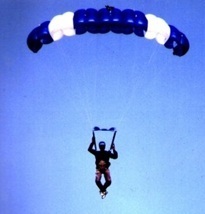So I am currently rewatching Stargate SG1 and thinking about certain things that always rub me the wrong way when watching or reading SciFi. Now, I know that Stargate in particular doesn’t really take itself too seriously and shouldn’t be scrutinized too much. It’s also a bit older. But there are still some things that even modern SciFi-Worlds featuring outer space and aliens have or lack, that always slightly rub me the wrong way. I would love to hear your opinion.
- Lack of any form of camera surveillance technology
I mean, come on, the Goa’uld couldn’t figure out a way to install their equivalent of cameras all over their battle ships in order to monitor it? They have forms of video/picture transmitting technology. Star Trek also seems to lack any form of video surveillance. (I’m not up to date with the newest series.) Yes, I get that having a crew member physically go to a cargo bay and check out the situation is better for dramatic purposes. But it always rubs me the wrong way that they have to do that. I would just love to see a SciFi-Series set in space where all space ships are equipped with proper camera technology. Not just some vague “sensor” that tells the crew “something is wrong, but you will still have to physically go there and see it for yourself”. I want the captain of a space ship to have access to the 200,000 cameras strategically placed all over the ship to monitor it.
- Languages
I have studied linguistics, learned several foreign languages and lived in a foreign country for a while, so my perspective is influenced by that. I always find it weird when everybody “just talks English”. Yes, I get that it’s easier to write stories in which all characters can just freely interact with each other. But it’s always so weird to me when an explorer comes to a foreign planet and everybody just talks their language. At least make up an explanation for it! “We found this translator device in the space ship that crashed on earth”. There you go. I love the Stargate Movie where Daniel Jackson figures out how to communicate with the people on Abydos. During the series most worlds will just speak English, with some random words in other languages thrown in. As someone interested in linguistics I love Stargate for how much it features deciphering languages, though I still find it weird when they go to another world and everybody just speaks English.
- Humanoid aliens
Especially with modern CGI I would just love to shows get more creative when it comes to alien races. We don’t need a person in a costume anymore. Every once in a while you will have that weird alien pop up, but all in all I feel like there’s still a lot of potential. Also changes in Human physiology due to different environmental conditions on foreign planets.
That being said, I would also like to mention some SciFi-titles that in my mind stand out for being very creative in this regard:
- The writing of Julie Czerneda is very creative when it comes to alien species. She was a biologist and uses her knowledge to create a wide variety of alien life forms
- The forever war (Without spoiling the end, so I’ll leave it at that. Just liked it as a creative take on an alien race so different it’s incomprehensible to us)
- I very much appreciate Douglas Adams for the babel fish.
- I also liked The expanse for including the development of a Belter language and changes in human physiology due to different gravity.
What do you think? Do you know any good examples of SciFi-Worldbuilding, that solve some common inconsistencies?
(Edited because it looked weird :P) Also, I rembered one more thing: I have two serious food allergies and I always cringe when I see characters take some random food from an alien civilisation and eat. It’s especially bad right now while rewatching Stargate. SG1 just keeps happily eating and drinking anything that is offered and there are so many scenes of them eating without asking much. Maybe it’s just because I can’t even do that in my own society and am so used to always asking “What is in it? Can I eat it?” Although some shows have good solutions like standard nutrient packs in a military context or food replicators that create any food you want.
This is a common complaint, but it deserves to be mentioned frequently: exploding control panels. This is especially a problem in Star Trek. Are circuit breakers a lost technology?
“This is especially a problem in Star Trek”
It gets really bad in ST Discovery, especially in the last season. Any time the ship gets into trouble, a cascade of sparks starts falling down. It looks like a waterfall made of sparks. The bridge basically looks like a KISS concert.
The bridge basically looks like a KISS concert.
lol I’ve seen what you’re talking about. It’s a little much.
Not just circuit breakers, but why are high powered circuits being used in the habitable parts of the ship?
Even modern cars no longer run high amperage circuits to the driver’s controls. Back in the old days, you turn on the lights, the light switch carried a full 12v and a lot of current to control relays. Today, the light switch and turn signal stalk use a signal circuit to tell a body control module what to do.
The bridge of a Star Trek ship should have control panels running on the future equivalent of 5 volt signal circuits that tells a distant and well shielded control module to switch the ultra high powered circuits.
That leads me to the one thing that has always bothered me about Star Trek and its transporters and replicators. E=MC^2… When a replicator creates food or an object, it would take at least the same amount of energy to make, as it would if the same amount of mass were destroyed in a nuclear reaction. That DOES mean in areas where those devices are installed there ARE ultra high powered circuits (EPS conduits) in the wall. So high powered that they have the equivalent of multiple nuclear explosions flowing through them every second… YIKES.
This is necroposting, but I really like to find a thread where Star Trek fans criticize Star Trek.
So, I was a Star Wars fan in my childhood.
Jedi there have “the Force” which is kinda magic, but involves “long-range telepathy”, “sensing” things far enough, and a bit of telekinesis.
Star Wars also has “blasters” which use cartridges, but seem to have a lot of power in those. Shield generators which create a mighty big thing. Hyperdrives which allow to move mass in some weird projection from normal space.
So-o. About energy.
A kinda strong Force user being killed or enraged might produce energy on the scale of, I dunno, small EMI. That happens in some SW plots.
A blaster cartridge getting a direct hit causes an explosion like a grenade, which makes sense.
A shield generator malfunctioning might kill the ship carrying it.
A hyperdrive malfunctioning is like a tactical nuke, which is why in SW plots they are very careful with hyperdrives. And this too makes sense.
And I’ve been, many times, told these things (including the existence of the Force) as arguments in favor of SW being tales about space wizards, as opposed to ST the sci-fi universe.
Yet in ST there are transporters, replicators and psychics everywhere, it’s all the same in the sense of magic and much worse in the sense of balance.
The exploding panels check out though. In SW stuff generally explodes, and also they “hotwire” spaceships and bunker doors like you’d do a 1970s car. And “slice” (hack) everything everywhere.
For me it’s time travel. So many times you’ll see science fiction openly doing paradoxes and causing time wars. Star Trek and Doctor Who are the biggest offenders of this. SG1 had an episode or two with it.
If you attempt to cause a paradox without traveling to another universe (99% of the case in SF), you will fail before you create the paradox. Take the example of killing Hitler. You can’t do it, because you’ve already failed in the past, or at least, your future self failed to do so, which caused your present self to make the attempt. So in the process of the attempt you will fail no matter what you attempt to do. Maybe you get stopped by some guards. Maybe he ducks at the last minute. Maybe your time machine crash lands. At best, you can observe and cause things that you didn’t notice or correlate to the present.
If you do the “oh it’s a different universe” thing, I tend to see that as just a cop out and lazy writing. And it’s rather boring to. What stakes can there possibly be if you can just hop to a universe in which XYZ happened/didn’t happen?
Becky Chambers wrote 4 books that did a really good job of exploring different species getting by with their differences not just in culture, but also in things like how they speak (one species has 5 vocal chords, so you literally cannot speak their language) or ‘how does publich transit account for different butt shapes?’
But on to your question on pet peeves:
- throwing science-y words out there that make no sense is probably my biggest.
- deus ex-machina - getting saved at the knick of time by something showing up without warning, but that’s just bad writing. I actually like how the Orville series removed transporters as a tech. It’s actually a bad plot device.
- but yeah, like you said, things that are obvious but are removed from the show, like cameras
In and of itself, I don’t mind it, but I’m mildly annoyed by most having some form of FTL travel. That’s why The Expanse was so refreshing for me.
Like, I get it. Having FTL drive (or comparable ways to go vast distances in short times) allows a larger universe for the characters. It’s also, I would imagine, easier to write since the writers wouldn’t have to deal with the vast scales, time dilation, and asynchronous events happening in different parts of the galaxy/story.
For comparison, The Expanse worked because it was all within our solar system. In the Revelation Space series (book), humans are doing interstellar travel, but they’re in cryo the whole trip, and the journey takes years. The author formerly worked for the ESA and pretty much had to show his work every step of the way to get all the characters together on the same planets at the same time.
So yeah, I get why we don’t see that more often (especially in TV series with less accredited writers), but it would be nice to see it once in a while nonetheless.
After Lem everything seems a bit too glamorous and toyish.
Liked the Expanse, yes.
But Swanwick’s “Vacuum flowers” are good too.
Revelation Space series does not have FTL, but in its place, an engine that can produce 1G indefinitely (not manufactured anymore, powered by handwavium, it seems… but the secret is revealed in one of the short stories). There is further shenanigans with physics, but never FTL.
It definitely adds more nuance to the world, because now you can’t have interstellar empires if you cannot communicate over large distances.
Spoiler
I forget the exact hand-wavium, but something like a contained black hole kept in check by a child’s brain. A child who volunteered for the task.
There is further shenanigans with physics
Yeah, and I really liked that subplot, too. In Star Trek, inertial dampeners are just a handwave device. But in RS, they explored humanity’s experiments with manipulating inertia and the gruesome results when pushed too far. Probably one of my favorite chapters of Redemption Ark.




